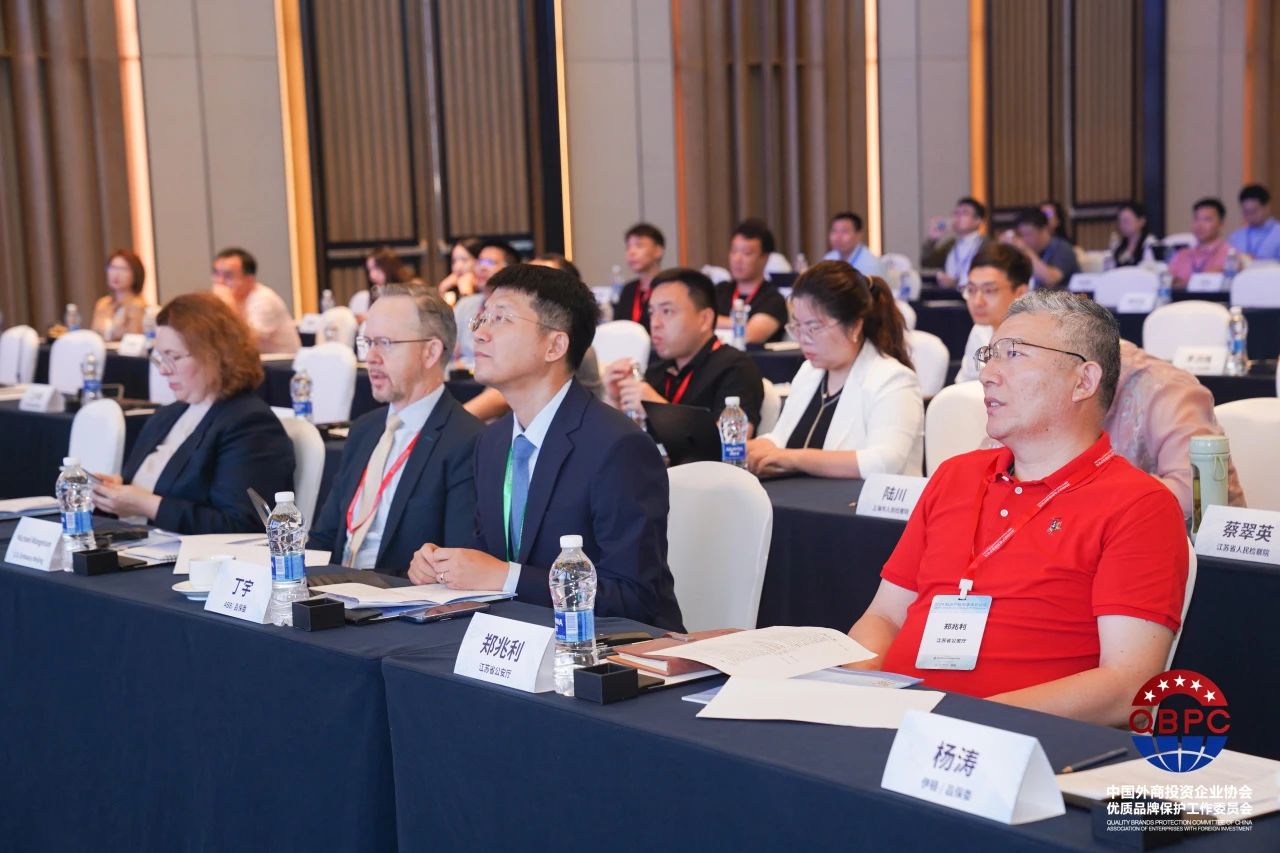On August 6, the 2024 QBPC Forum on Criminal IP Protection concluded successfully. Today’s agenda included four panel discussions, focusing on "New Trends, Challenges and Explorations in Criminal IP Enforcement", "Digital Economy and IP Protection", "New Hotspots and New Characteristics of IP Litigation, Criminal Incidental Civil Litigation" and "International Collaboration & Exchange on Criminal IP Enforcement".
✦Panel 1✦
Amanda Wu (QBPC Wireless & Integrated Circuit IWG Coordinator from Apple) moderated the Panel One on New Trends, Challenges and Explorations in Criminal IP Enforcement. Wang Hongnan (Deputy Procurator General of Nanjing Railway Transportation Procuratorate), Zhu Wenda (Captain of FDECID, Jiaxing Public Security Bureau), ,Perry NG (Criminal Intelligence Officer, Illicit Markets, Public Health and Pharmaceutical Crime, INTERPOL Global Complex for Innovation), Felix Zhang (Associate Director Anti-Falsified Medicines, North Asia, Global Security, Novartis) and Sarah Zhao (Senior IP Counsel for the Asia Pacific, UL SOLUTIONS) shared their views and experience on relevant issues. Wang Hongnan mainly focused on the new features and trends of IP criminal crimes, as well as the exploration of criminal justice protection. Zhu Wenda spoke on the cross-border synergy and innovation of the articulation between civil and criminal procedures. Perry NG introduced how Interpol organized the forces of all parties and effectively combat against criminals through global collaboration, especially under the circumstances of the internationalization of IP crimes, especially the crime of illegal drugs. Felix Zhang presented the challenges in managing counterfeit and substandard medicines as well as anti-counterfeiting efforts..Sarah Zhao shared the difficulties and solutions in the promotion and protection of public security. Finally, in the interactive discussion session, the speakers stated that criminal protection was the last line of defense in the overall protection of IPR. Counterfeiting of registered trademarks did not only infringe upon right holders, but also harm public rights and interests as well as the social order. Unsafe products may also cause serious personal injuries and social hazards. Through continuous exchanges and constant efforts, relevant parties would definitely achieve further progress in the criminal protection of IPR in the future.
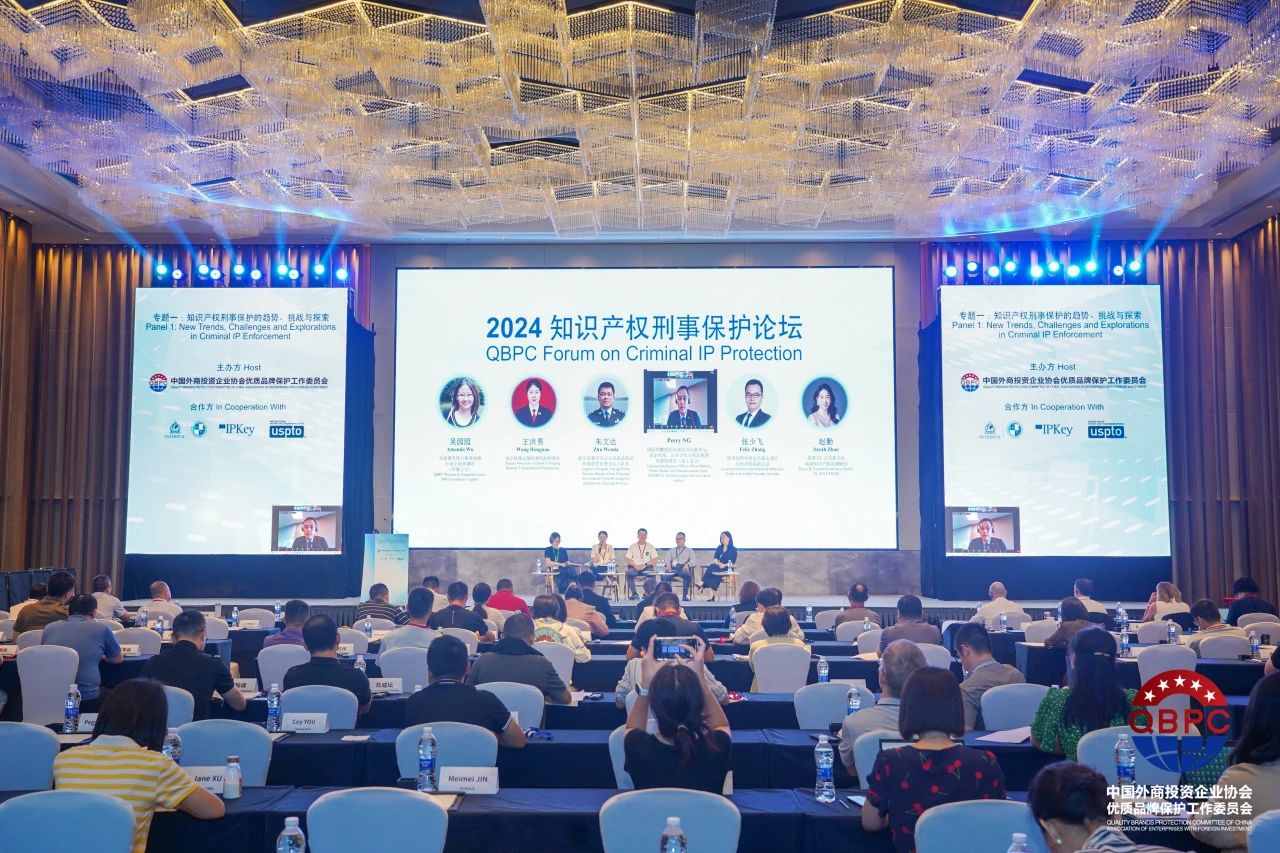
Panel 1
✦Panel 2✦
Kyle Zhu (QBPC Internet Committee Vice Chair from MCM) moderated the Panel Two, with the speakers - Lu Zhaomin (Director of Law Enforcement Supervision Office, Economic Crime Investigation Division of Changning Branch, Shanghai PSB), Hu Nan (Prosecutor of the Third Procuratorate Department, People’s Procuratorate of Changning District of Shanghai), Wang Leng (Deputy Director of the Second Procuratorate Department, People's Procuratorate of Daxing District of Beijing), Ken Chen(QBPC Legal Committee Vice Chair from Nike), Ray Zhong (QBPC Lighting and Smart Home IWG Coordinator from Zippo) and Zhang Xiaokang (Safety Affairs Director, Douyin Group). The presenters offered their opinions from three perspectives: target selection in criminal cases, investigation and crackdown after the confirmation of target, and application of certain evidence in the examination and prosecution stages. First, due to limited resources and the principle of efficiency, The representatives of PSBs, procuratorates, rights holders and online platforms each put forward their views and opinions on target selection; then, after confirming the target and filing a case, they expressed their views on how to effectively dig upstream and downstream clues, and how to fight against IP infringement in the whole chain; Finally, the procuratorate delivered professional presentations on topics such as "Determination on the Liability of Internet Platform Operators in Trademark Infringement Cases," "Evidence Collection, Proof Fixing and Criminal Proof Criteria for Trademark Infringement Cases in Network Environment," and "Difficult Issues Relating to the Value of Illegal Business Operation in Counterfeit Cases." In general, to effectively investigate criminal cases in the online economic environment, it was necessary to actively integrate the power and resources of law enforcement, platforms, and rights holders.
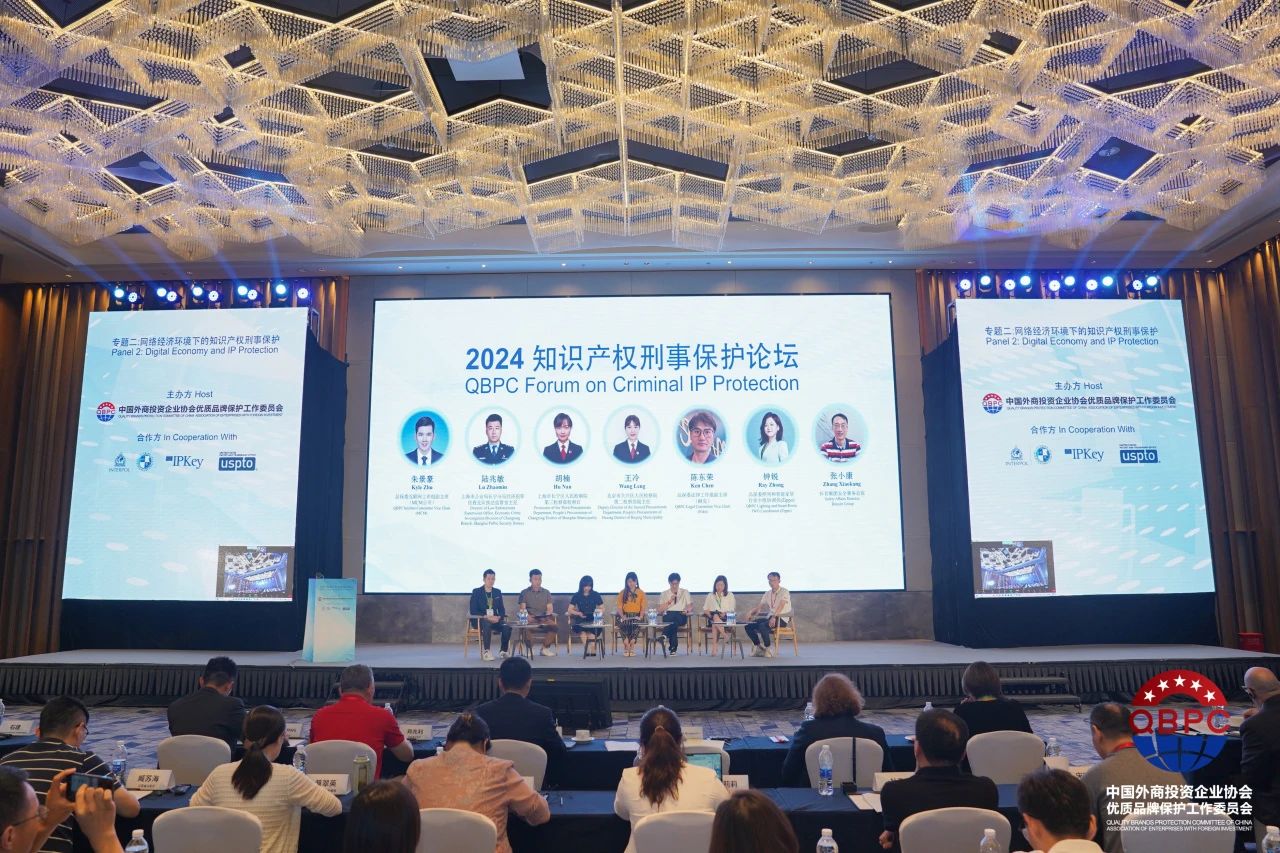
Panel 2
✦Panel 3✦
Frances Tang (QBPC member representative from Tapestry) hosted the panel on the mechanism of two-way articulation between administrative and criminal enforcement, the experience in application of the system of civil suit collateral to criminal proceeding as well as the civil-criminal articulation governance under the copyright law. According to Dai Guang (Head of IP Office, FDECID of Xinyu PSB Jiangxi Province), Xinyu improved the efficiency of the criminal protection of local IPR and create a healthy and orderly business environment through information sharing between administrative and public security organs, joint law enforcement, and the flexible mechanism of the convergence of administrative and criminal enforcement. Wang Dong (Deputy Director of the Second Procuratorate Department, People's Procuratorate of Chaoyang District of Beijing) shared the practice of two-way convergence of administrative enforcement and criminal enforcement in Chaoyang District, as well as the challenges and solutions to the practice of "reverse convergence" mechanism, which meant transferring from judicial authorities to administrative authorities. Mao Yue (Prosecutor of the Third Procuratorate Department, Jiangyin People’s Procuratorate, Jiangsu Province) introduced the mechanism of prioritizing compensation to right holders for the proceeds of violation of the law, which was a special feature in the handling of IP criminal cases in Jiangyin Municipal Court. Several rights holders had already been compensated through mediation and trial in the civil suit collateral to criminal proceedings in Jiangyin. Gu Hongfei (Chief Judge of SNO-ITALY Ningbo Ecological Park People's Court of Yuyao People’s Court, Zhejiang Province) emphasized that under the guidance of Zhejiang Provincial Higher People's Court, "three in one" adjudication model of IPR trial had brought about unique procedural advantages on civil suit collateral to criminal proceedings locally, which improved the efficiency and quality of the trial. Furthermore, it enabled the court to give overall consideration to the criminal punishment and civil damages in the same case. Liu Peng (Researcher of Institute of Intellectual Property Law and Policy, East China University of Political Science and Law) explained his observations and views on the articulation between civil and criminal procedures related to copyright infringement from the perspective of legal theory.
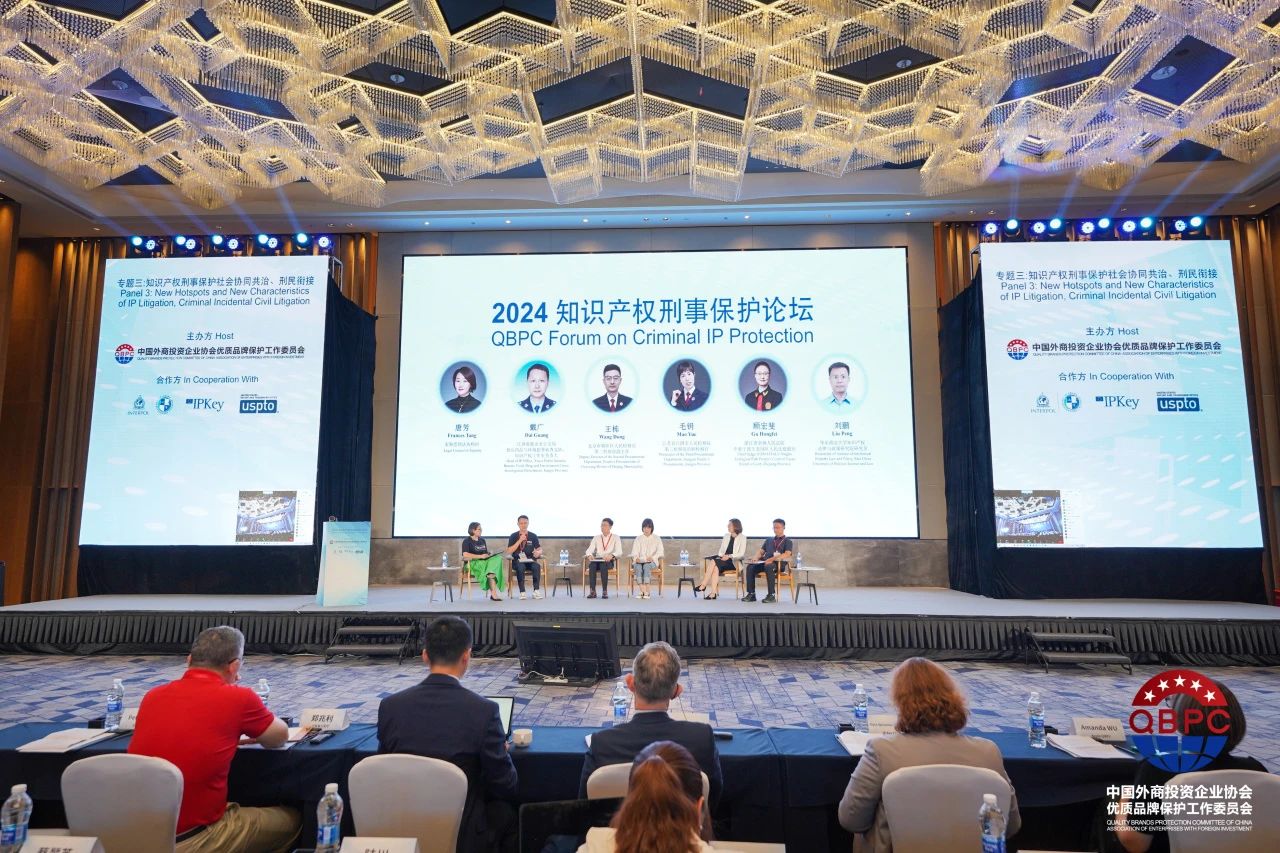
Panel 3
✦Panel 4✦
Michael Mangelson (IP Counselor of U.S. Embassy Beijing) hosted the last panel, and Aleksandar Velev (Analysis Projects (AP) COPY - Intellectual Property Crime Coordinated Coalition (IPC3), EUROPOL), Ramon Romo (Regional Attaché - China & Mongolia, U.S. Department of Homeland Security), John Taylor (Legal Attaché, U.S. Embassy Beijing) and Jesscia Li (QBPC Customs Committee Chair from VS&Co.) were the speakers. The panel addressed how they handled IP enforcement in their agencies and how they coordinated with other law enforcement on cross-border IP crimes, including with China law enforcement. They emphasized the importance of this collaboration at all levels of the enforcement chain, starting with the right holders. They noted that collaboration included both cooperation on specific cases and providing information on different practices through exchanges, capacity building, training and public programs.
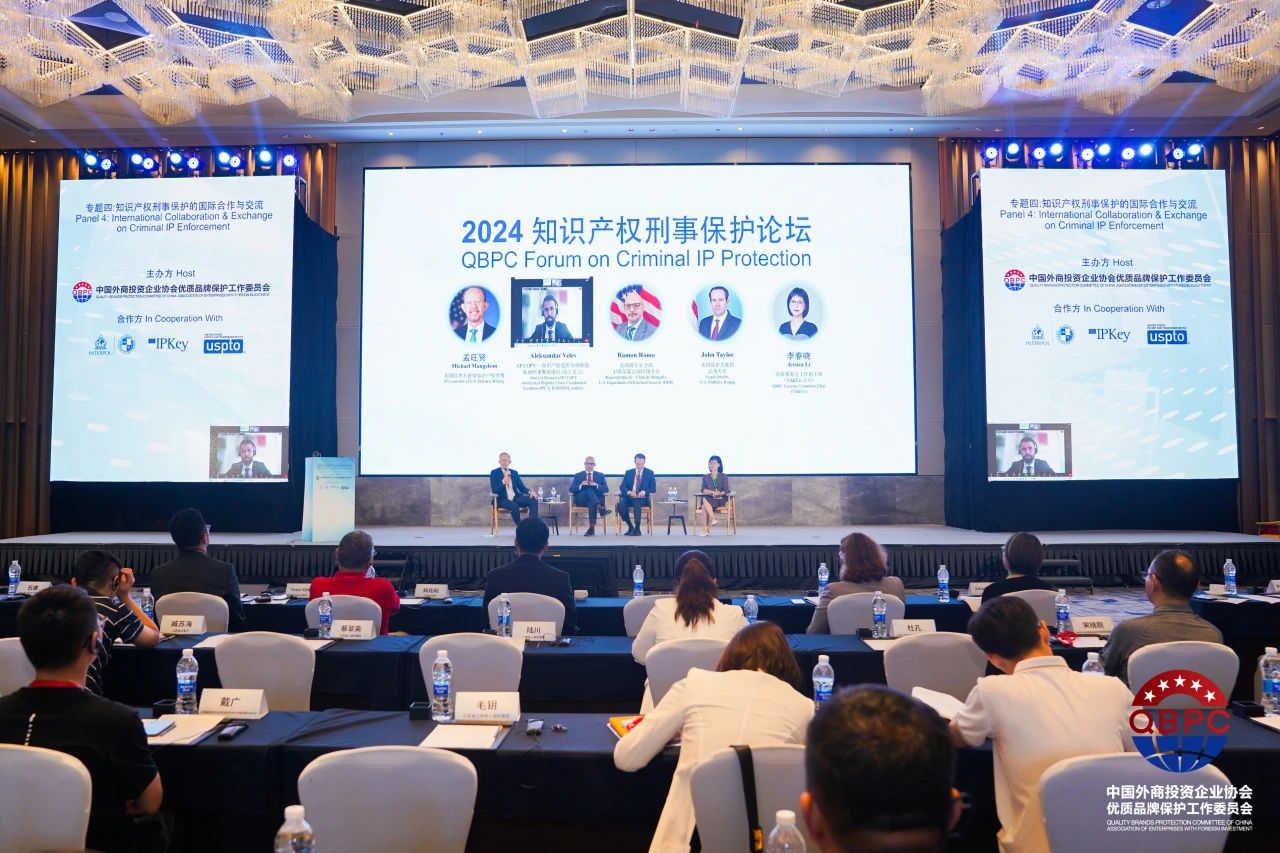
Panel 4
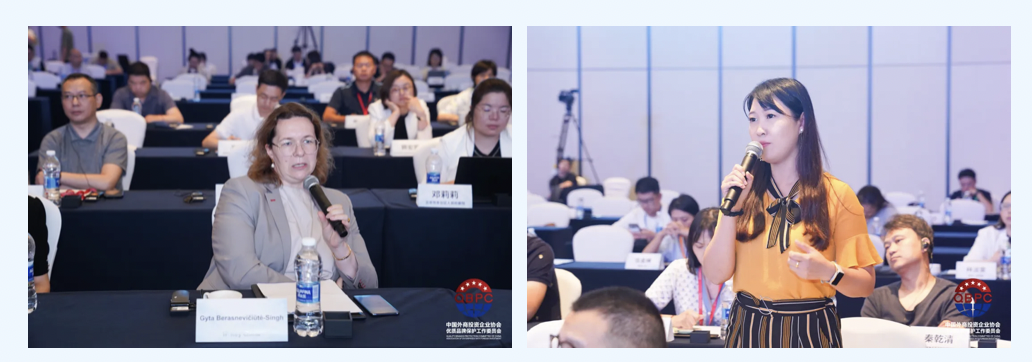
Q&A
In the closing remarks, Michael thanked all speakers on behalf of QBPC. He stated that their excellent presentations provided not only global perspectives but also insights through the eyes of China. It was a great honor to have the guests to exchange with QBPC members in person. QBPC would continue to facilitate such communication and collaboration for a better IP legal environment. He looked forward to continuous support and proactive engagement by all parties in QBPC programs and events.
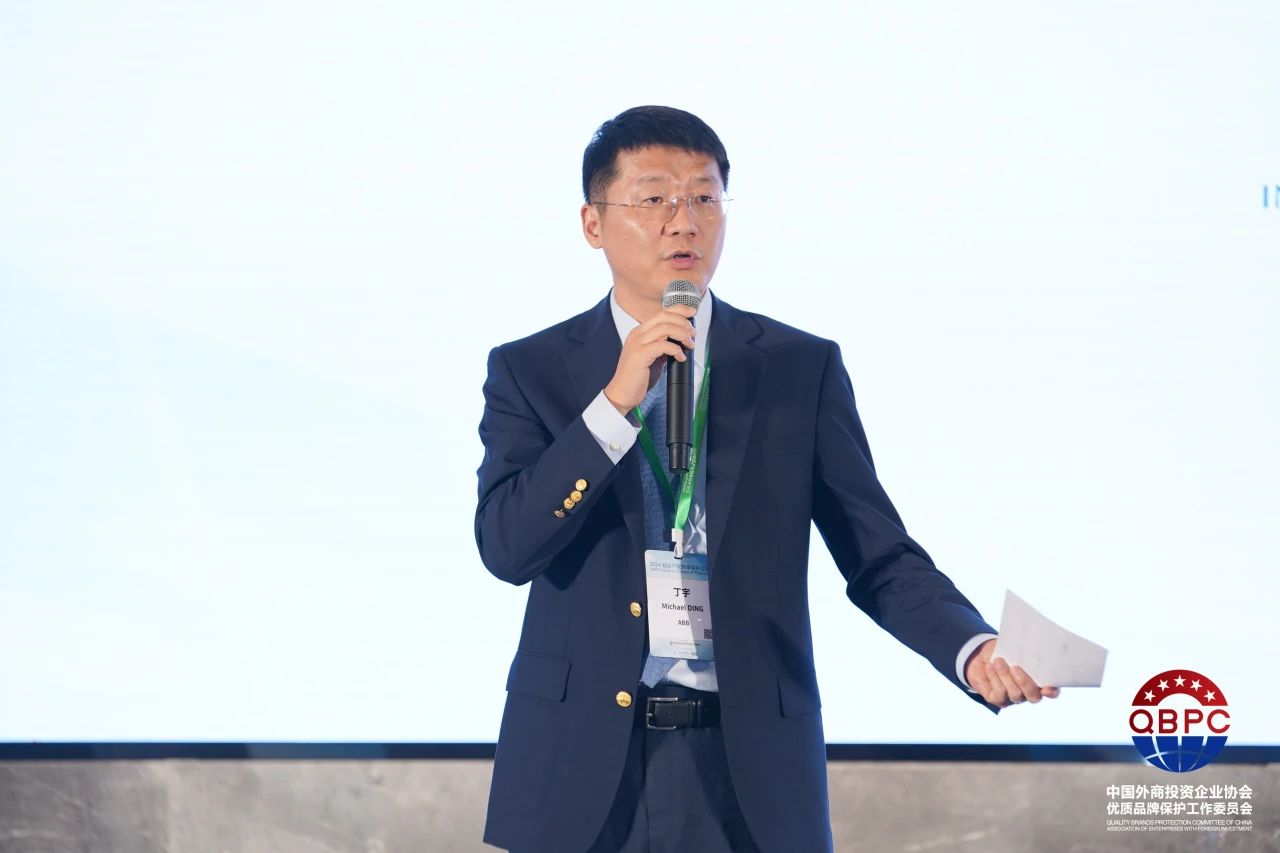
Michael Ding
